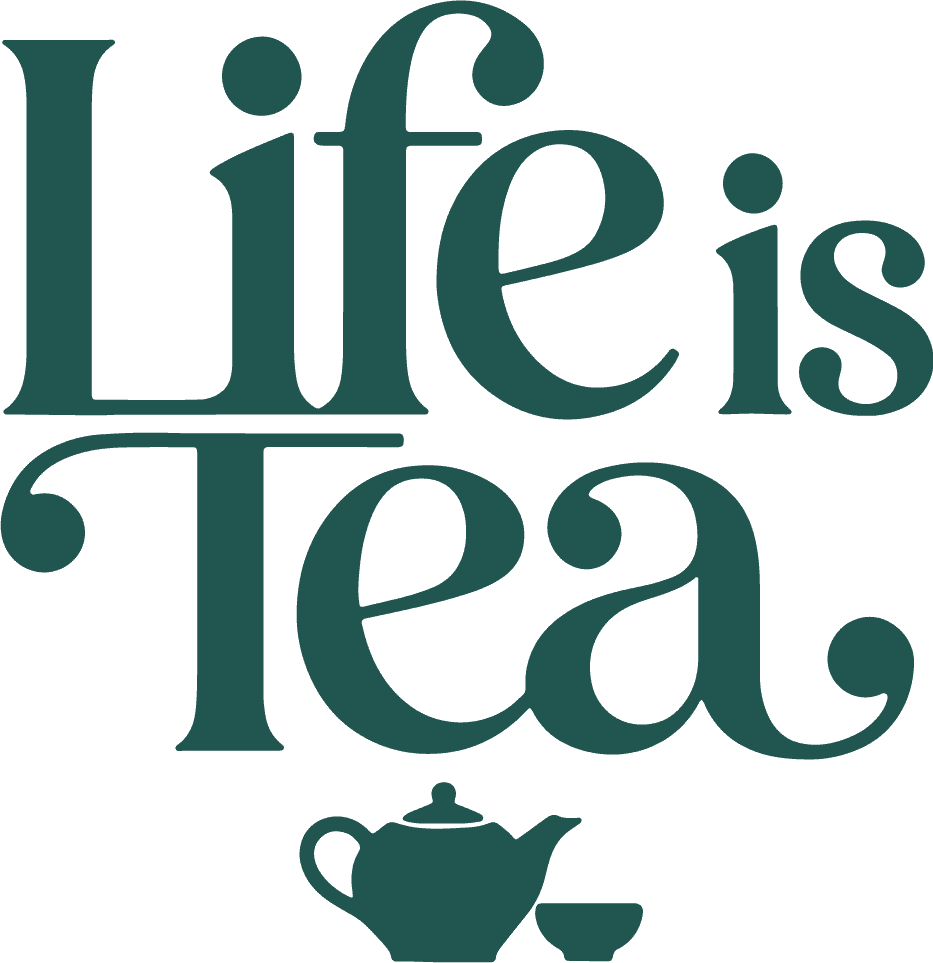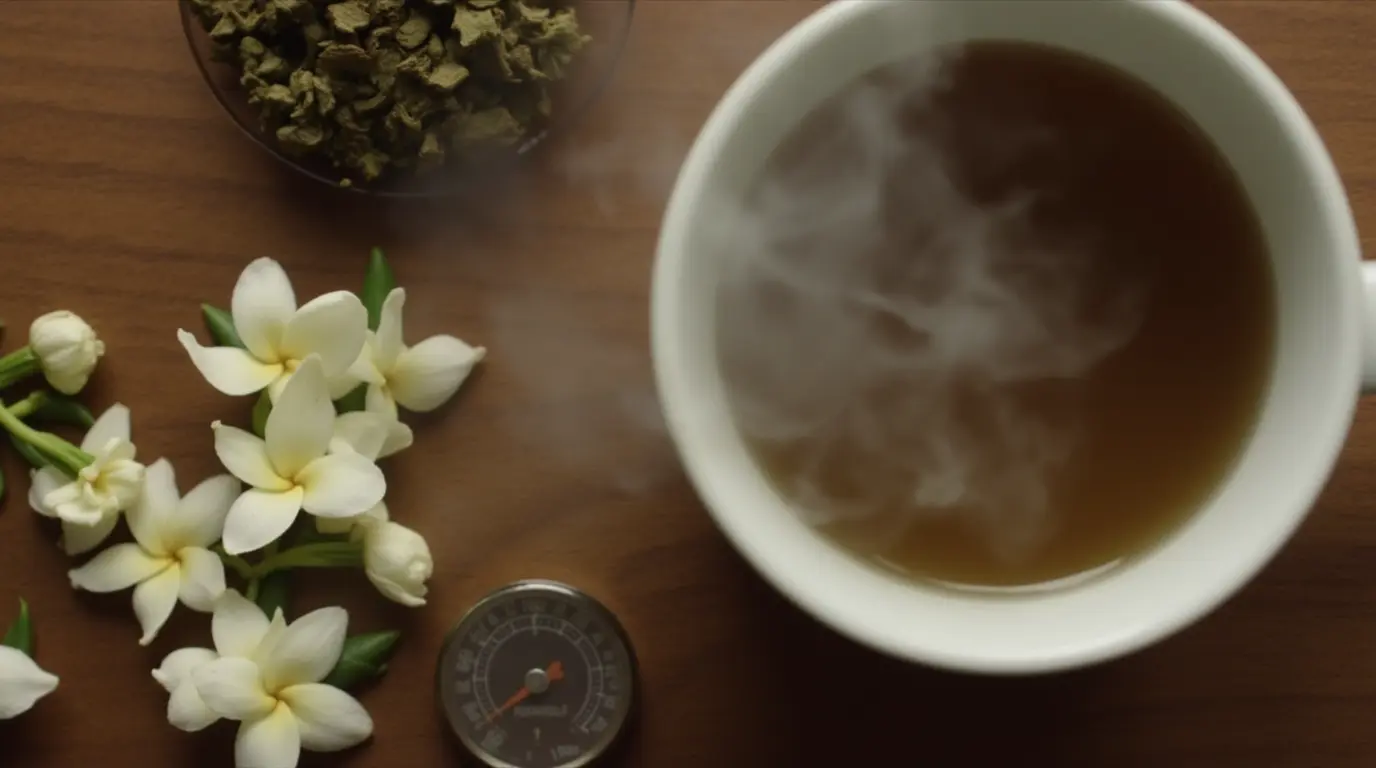Table of Contents
Jasmine tea is a mix of green tea leaves and jasmine flowers. It’s known for its lovely scent and taste. Whether you love tea or are new to jasmine tea, finding the right one can be fun. We’ll look at different jasmine teas, what to think about when picking one, and how to brew it just right for you.
Key Takeaways
- Jasmine tea comes in various forms, including traditional jasmine green tea, jasmine oolong, and jasmine black tea.
- Consider factors like origin, processing methods, and quality when choosing the perfect jasmine tea.
- Brewing techniques, such as water temperature and steeping time, can significantly impact the flavor and aroma of your jasmine tea.
- Jasmine tea can be enjoyed hot or iced, offering a refreshing and soothing experience any time of the year.
- Exploring the diverse world of jasmine tea can lead to a newfound appreciation for this captivating beverage.
Unveiling the World of Jasmine Tea
Jasmine tea is a captivating and fragrant beverage loved by tea enthusiasts worldwide. It’s made by blending fresh jasmine flowers with high-quality tea leaves. This creates a unique and enchanting drinking experience that awakens the senses.
What is Jasmine Tea?
Jasmine tea, also known as jasmine-scented tea, is a special type of tea. It’s made by infusing tea leaves with jasmine flower essence. The process involves layering tea leaves with fresh jasmine blossoms, allowing the scent to infuse into the leaves.
This results in a tea that’s both fragrant and flavorful. It has a distinct jasmine tea aroma and jasmine tea flavor.
The Alluring Aroma and Flavor
The allure of jasmine tea is its captivating aroma and delicate flavor. The jasmine flower’s sweet fragrance is expertly captured in the tea. This creates a unique and enchanting drinking experience.
As you sip jasmine tea, you’ll be greeted by a soothing aroma. It’s like being in a tranquil garden filled with jasmine blossoms. The flavor of jasmine-tea is also captivating, with a delicate and floral taste.
This taste is both soothing and refreshing. The jasmine essence complements the tea leaves’ flavors, creating a harmonious beverage. Whether you prefer green, oolong, or black tea, jasmine elevates the experience.
Understanding the Types of Jasmine Tea
Jasmine-tea is more than just green tea. You can also try jasmine oolong and jasmine black tea. Each type gives a unique taste experience, pleasing different tea lovers.
Traditional Jasmine Green Tea
Jasmine green tea is the classic choice. It’s made by scenting green tea leaves with jasmine flowers. This creates a lovely smell and a gentle taste.
The tea-making process is done carefully. It ensures the flavors of the tea and jasmine flowers are just right.
Jasmine Oolong and Black Tea Varieties
While jasmine green tea is famous, other teas are becoming popular too. Jasmine oolong tea and jasmine black tea have their own tastes. They suit different preferences.
The tea’s base, like oolong or black, changes its taste. Jasmine’s floral scent makes each tea special.
| Tea Type | Flavor Profile | Oxidation Level |
| Jasmine Green Tea | Delicate, floral | Unoxidized |
| Jasmine Oolong Tea | Mellow, semi-floral | Semi-oxidized |
| Jasmine Black Tea | Full-bodied, robust | Fully oxidized |
Jasmine’s essence makes each tea special. It offers a wide range of flavors for tea lovers to enjoy.
Factors to Consider When Choosing Jasmine Tea
When picking the right jasmine tea, there are key things to think about. Knowing these can help you find a tea that fits your taste and makes drinking it more enjoyable.
The tea base is a big factor. Jasmine-tea can come from green, oolong, or black tea. Each type has its own flavor, so think about what you like when choosing.
- Green tea jasmine blends have a light, floral scent and a fresh taste.
- Oolong jasmine tea offers a complex flavor with floral and toasted notes.
- Black tea jasmine blends have a bold, rich taste.
The origin of the jasmine-tea is also important. Teas from China or other places have unique flavors. Exploring these can be a fun part of your tea adventure.
The quality of the jasmine-tea matters too. Look for teas with high-quality leaves and careful processing. This helps keep the jasmine aroma and flavor strong.
By thinking about these factors, you can pick a jasmine-tea that matches your taste. This will make your tea time even better.
Exploring the Origins and Growing Regions
Jasmine tea’s unique scent and taste come from China, where most of it is made. The Fujian and Guangdong provinces are famous for their top-notch jasmine-teas. They offer a wide range of flavors.
Chinese Jasmine Tea
China’s love for jasmine-tea goes back centuries. It’s the main place where this fragrant tea is made and sold. The special growing and making methods in Fujian and Guangdong make some of the world’s best jasmine-teas.
These teas are loved for their light floral scent, smooth feel, and rich taste.
Other Notable Producers
While China leads in jasmine tea, other places also make great jasmine-tea. Taiwan is known for its jasmine oolong teas. They mix the tea’s natural taste with the jasmine’s scent perfectly.
Some parts of India also make high-quality jasmine-tea. This adds more variety to the world of jasmine-tea.
| Region | Jasmine Tea Varieties | Tasting Notes |
| Fujian, China | Jasmine Green Tea | Delicate floral aroma, smooth and refreshing flavor |
| Guangdong, China | Jasmine Dragon Pearl Tea | Intoxicating jasmine scent, silky texture, and a well-balanced taste |
| Taiwan | Jasmine Oolong Tea | Harmonious fusion of jasmine fragrance and the tea’s natural complexity |
| Darjeeling, India | Jasmine Black Tea | Robust tea base with a delicate jasmine aroma and flavor |
Selecting High-Quality Jasmine Tea
Choosing the right jasmine-tea is all about quality. Look for certain signs to find a tea that tastes great. These signs will make your tea-drinking experience unforgettable.
First, check the tea leaves’ freshness. They should be bright in color and soft to the touch. If they look dull or dry, the tea is likely old.
The jasmine scent is also key. A good jasmine-tea has a strong, yet gentle, floral smell. If the scent is too strong or weak, it might mean the tea wasn’t made right.
- Examine the tea leaves for a vibrant, velvety appearance
- Assess the jasmine aroma for a captivating, balanced floral fragrance
- Look for an overall harmonious balance between the tea base and the jasmine notes
Finally, the tea and jasmine should blend well together. A great jasmine-tea lets the tea’s taste and the jasmine’s scent work together. If one overpowers the other, the tea won’t taste as good.
| Quality Indicator | Characteristics of High-Quality Jasmine Tea |
| Tea Leaf Appearance | Vibrant, velvety texture |
| Jasmine Aroma | Captivating, balanced floral fragrance |
| Flavor Balance | Harmonious integration of tea base and jasmine notes |
By looking for these signs, you can pick a jasmine-tea that’s truly special. It will show you the beauty of this delicate tea.
Jasmine Tea
Jasmine-tea is loved by tea lovers all over the world. It’s known for its delicate floral taste and smooth flavor. It comes from China and other tea places, making it a special gem in tea.
The making of jasmine-tea is special. Jasmine flowers are mixed with tea leaves. This creates a tea with a lovely smell and taste. It’s a mix that feels both calming and refreshing.
You can enjoy jasmine-tea in many ways. It’s great hot on a cold day or iced on a warm one. Its flavors can be light and floral or strong and complex. This makes it perfect for both tea experts and casual drinkers.
Exploring jasmine-tea is like going on a journey. Each place and way of making it adds its own special touch. From China’s Jasmine Dragon Pearls to Taiwan’s Jasmine Oolong, there’s a lot to try.
| Variety | Origin | Flavor Profile |
| Jasmine Dragon Pearls | China | Delicate, floral, and slightly sweet |
| Jasmine Silver Needle | China | Mellow, aromatic, and subtly sweet |
| Jasmine Oolong | Taiwan | Robust, complex, and balanced |
| Jasmine Black Tea | India | Full-bodied, floral, and slightly astringent |
Whether you’re already a jasmine-tea fan or new to it, there’s always more to learn. From how to brew the perfect cup to the stories of each region, jasmine-tea is a journey worth taking. Let this tea bring you peace and joy.
Brewing the Perfect Cup of Jasmine Tea
Making the perfect cup of jasmine tea is an art. It needs careful attention to detail. The right water temperature and steeping time are key. Each step is important for bringing out the tea’s full flavor and aroma.
Water Temperature and Steeping Time
To make the perfect jasmine tea, heat the water to about 195°F (91°C). This temperature helps the tea leaves release their oils and compounds. This results in a balanced and fragrant tea.
The steeping time for jasmine-tea is longer than other teas. Steep the leaves for 3 to 5 minutes. This lets the tea fully develop its floral and sweet notes.
- Use water heated to 195°F (91°C) for the best extraction of jasmine-tea’s flavors.
- Steep the tea leaves for 3 to 5 minutes to achieve the perfect balance of aroma and taste.
- Adjust the steeping time based on the type of jasmine-tea and your personal taste preferences.
By following these jasmine-tea brewing tips, you’ll make a delightful and aromatic cup. Enjoy the unique and captivating flavors of jasmine.
Enjoying Jasmine Tea: Hot or Iced?
Jasmine tea can be enjoyed in many ways, fitting your mood and the moment. A warm cup of jasmine-tea is soothing, perfect for cold days. Its floral notes and smooth taste offer a calming, refreshing experience.
An iced jasmine-tea is refreshing, great for hot weather. Its coolness and bubbly nature are a welcome break from summer heat. The same floral scents and sweetness found in hot tea are just as delightful over ice.
Discovering the many ways to enjoy jasmine-tea lets you match it to your mood and setting. Whether you like the warmth of hot tea or the coolness of iced, there’s a way to enjoy it that suits you.
FAQ
What is jasmine tea?
Jasmine-tea is a scented tea made by infusing green, oolong, or black tea with jasmine flowers. The tea captures the delicate jasmine fragrance, offering a unique drinking experience.
Does jasmine tea have caffeine?
Yes, jasmine-tea has caffeine. The caffeine amount varies by tea base, but it’s less than coffee.
What are the different types of jasmine tea?
Jasmine-tea comes from green, oolong, or black tea bases. Traditional jasmine green tea is the most popular, known for its floral flavor. Jasmine-scented oolong and black teas also offer unique tastes.
How do I choose the best jasmine tea?
Look for the tea base, origin, quality, and processing methods when picking jasmine-tea. Check the tea’s freshness, jasmine aroma, and balance between tea and floral notes for a high-quality choice.
How do I brew jasmine tea?
To brew perfect jasmine-tea, use the right water temperature and steeping time. Heat water to 195°F to 205°F (91°C to 96°C). Steep the leaves for 2-3 minutes to bring out the jasmine’s flavor and aroma.
Can I enjoy jasmine tea hot or iced?
Yes, you can enjoy jasmine-tea hot or iced. A warm cup is soothing, while iced tea is refreshing, especially in warm weather.
What are the benefits of drinking jasmine tea?
Jasmine-tea has many health benefits, like antioxidants and stress relief. It also supports digestion and offers a calming jasmine aroma for relaxation.

